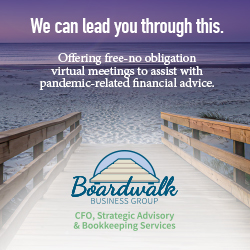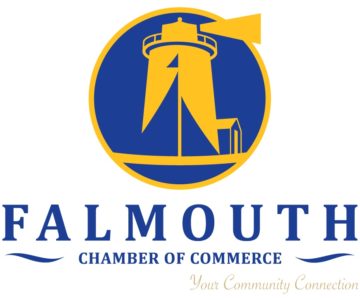Thirty-eight years ago, when Tom Murphy took over Falmouth Toyota, most folks drove sedans and bought their cars.
It’s a different world today for the auto industry, with leasing, SUVs and car-buying sites on the internet, but the core principles of this family-owned business have remained the same.
“My dad’s guiding principle is if you take the best care of your customers and your employees, they will take care of you and the rest will take care of itself,” says Matt Murphy, Tom’s eldest son, who is general manager at the dealership. “I think that’s holds true of any business.”
Tom Murphy began his career in the auto industry selling cars for a Volkswagen dealership in Westborough. Back in the 1970s, Toyota was starting to become known in the U.S. and Chris Bullock, who worked with Murphy, was able to secure a franchise in Hyannis and asked Murphy to be the general manager. “My dad’s dream was to have a store of his own,” recalls Matt, adding that his father also dreamed of living on the Cape, where the family vacationed. “We owe a lot to Mr. Bullock, he gave my dad an incredible opportunity to live on the Cape.”
After managing the Hyannis dealership from 1972 to 1982, Tom Murphy was approached with another golden opportunity. The owner of Falmouth Toyota in East Falmouth asked Murphy to work for him and be a partner in the business. Murphy accepted the offer and eventually became the sole owner.
Today, while Tom continues to be “very, very involved on all levels, his two sons manage the day to day business of this bustling dealership, which outgrew its Route 28, East Falmouth location and moved to MacArthur Boulevard in in Bourne in 1989 on a three-acre site. “We decided to keep the name ‘Falmouth’ even though we were now in Bourne,” says Matt.
The business further expanded in 2015, doubling the size of its building, which includes sales, service and parts departments on 10 acres of land in a distinctive, contemporary building. Ninety-one full and part time people are employed here.
Matt started working summers at the dealership in 1982 when he was in high school. “I’m proud to say I did everything, cleaning bathrooms, washing cars, sometimes working in service or parts departments,” he says.
All three Murphy kids eventually worked full time for their dad; Matt starting after graduating from St. Michael’s College in 1990, in sales, with younger brother Tom, now vice president, coming on board in 1996. Their sister worked there for year as well.
Falmouth Toyota has weathered challenges in the industry and the Murphys adapted their business strategy to changing times.
“The internet changed everything,” notes Matt. “The business is so much more transparent. A lot of our shoppers know what they want before they walk through the door as there is so much information available on the internet. Sometimes shoppers know more than we do.”
The entire sales process has changed as a result. “We were trained that when a customer bought a new vehicle, they were driving a new vehicle in seven days. Fast forward 30 years: it’s 90 days, because of people doing all this online research so the process begins much earlier. We have to recognize that a shopper is probably looking at other dealers and researching other brands. This forced us to adapt the sales process accordingly, to change our mindset. A lead is no longer who comes in the door or calls. It’s an email. And if someone is asking, they are buying. It’s a nurturing process, really.”
Building relationships, as Tom Murphy believed, still works today, where there’s little face-to-face, personal interaction.
“A lot of dealers spend a lot of money buying CRM systems, automated email programs, but we ask, ‘how can we make car buying more personal?’” says Matt. “We went through a couple big recessions, but saw a minimal decrease in our business due to how we take care of people. We’ve earned their trust over the years and that’s a good formula for good times and bad.”
They haven’t completely ignored the Internet. Falmouth Toyota has an employee dedicated to social media and digital advertising, which has taken over print advertising as the primary way to market vehicles. They also use radio and TV, but more as a way of branding Falmouth Toyota’s image than sell vehicles.
The Rav4 is Falmouth Toyota’s largest selling car and the most popular car sold in the U.S. The popularity of SUVs is another change that has greatly impacted the auto industry.
“It’s taking over the sedan market,” Matt confirms, adding that Ford, for example, is no longer making sedans, only SUVs and trucks. “That’s the way the business is heading.”
Another significant change to the industry has been leasing. Decades ago, people bought a car, held onto it for 10 years, repaired it and bought a new car, a long buying cycle. While the Cape demographic is largely retirees who traditionally paid cash for cars, more than 50 percent of Americans now lease their vehicles. Manufacturers subsidize the cost, making leasing an affordable option and dealers capitalize on a shorter buying cycle.
When dealers were left with a glut of three-year-old vehicles, Toyota came up with a way to move that inventory through its Certified Used Vehicles program. The former leased cars come with a warranty and Internet branding, accessibly by search engines all over the country, appealing to the other 45 percent or so of people who want to buy a good used car.
“There’s a lot of great cars out there that last a long time,” Matt feels.
With about 20 car dealerships on Cape Cod, and many along the Bourne Auto Mile, dealers must differentiate themselves to grab a potential customer’s attention.
“We [dealers] all pay the same but we have to stay competitive,” Matt says. “The business comes down to what a customer can pay. It’s still basic sales, keeping your name and face in front of a customer. We’re not perfect. It’s been a learning curve, but at the end of the day, making a customer’s experience as personal as possible, showing that we care, builds long-term relationships.”























